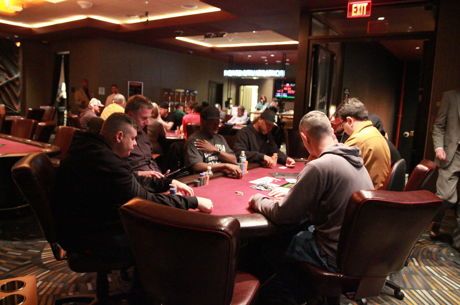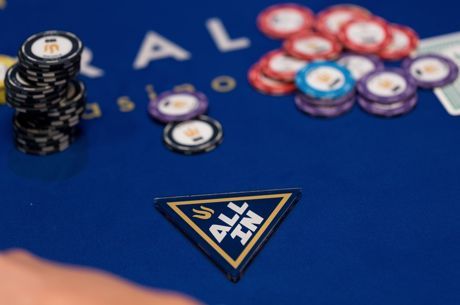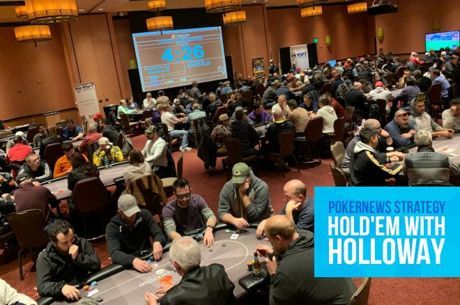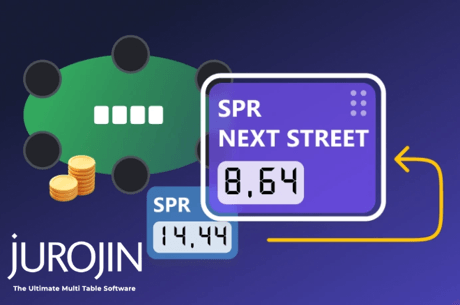Am I Bad or Unlucky? Addressing a Commonly Asked Poker Question
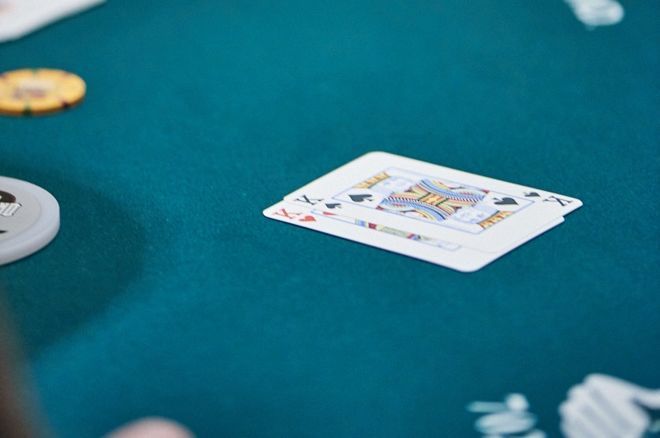
Poker is not an easy game — neither in terms of strategy, nor in terms of understanding the game itself.
This is what happens whenever chance is involved. The concept of "luck" is such an incredibly complex beast for us humans to grasp, that not only we do not fully understand it, but we also have no idea how to tame it. Moreover, since luck is such an integral part of poker, it often makes it impossible for players to assess their skill objectively.
Unlike games like chess where the skill differential is tied up to a somewhat transparent logic (supported by a straightforward reward system which is based on performance), poker players have a really tough time making the essential distinction between mistakes and bad luck.
In poker, sometimes the right choice gets penalized and the wrong choice gets rewarded. This inevitably creates subtleties which are very difficult to appreciate without closer study.
An Extreme Example
Here is a classic extreme example to illustrate the point. Say Alice decides to play live at her local casino. She looks down at K♥K♠ and raises. After everyone else folds, an older gentleman by the name of Bob reraises. She then proceeds to re-reraise Bob, only to hear him announce all-in.
Alice quickly calls and gets the bad news — Bob has A♣A♦! The question is: Did Alice make a mistake? Three answers spring to mind:
- Yes
- No
- It depends
The "correct" answer here is secondary. Let's instead focus on the thought process of the supporters behind each of these choices. It is quite fascinating that all of the above categories have their passionate followers.
Before rushing to choose one, let's think as a poker player and try to understand why anyone would pick any of these approaches. Hopefully, this exercise will help us dissect the subtleties of the game better and appreciate its complexity.
The Debate
To get a better visual, let's suppose that Yvette thinks the best answer is Yes, Norton is in the No camp, while Deborah believes that gathering more information is a superior approach to both ("It Depends"). If everyone were to make their case, here is how a debate among the three could go.
"Yes, Alice made a mistake!" Yvette begins. "Since Bob ended having a better hand than her, it is Alice's responsibility to read through the situation. If she cannot decipher Bob's hand, she has no one else to blame but herself."
"Wait a minute!" Norton interjects. "That's results-oriented thinking! Bob could easily have A-K, Q-Q, J-J or worse and do the same thing. Even though Alice happens to be behind Bob's exact hand, she is certainly ahead of his 'range' — namely, the collection of all hands that Bob could and would have in similar situation. Thus by calling, Alice loses money now, but she makes money in the long run."
"Hmmm... I'm not so sure about that," says Deborah, finally breaking her silence. "I think our answer should depend on the circumstances. Stack sizes, relative positions, stakes, history, and player tendencies are only a few examples of the information we are missing. We don't even know if it's a cash game or a tournament! Unless Alice has the nuts, the words 'never' and 'always' should have no place in poker."
Interestingly enough, all of the approaches above have at least some merit. Even Yvette's argument — arguably the weakest of the three — does have certain applications, especially against inexperienced competition.
To paraphrase Phil Hellmuth: "I don't care if ICM suggests that I should be calling with A-Jo for 10 bigs versus a small blind shove. If I know my opponent has me crushed, I should fold every time!" And he is right! A good read always trumps any strategy.
The problem, of course, is that as the games have gotten tougher, the situations in which a poker player can actually use all of the available information to reduce his or her opponent's hand to a very narrow range have become increasingly rare.
As a result, Norton's advice to avoid "results oriented thinking" is a very solid one. Simply put, most players do similar things with a variety of holdings preventing even the most astute of hand readers to accurately put them on a hand. For that reason, a range analysis is more preferable in the vast majority of the situations.
As great as range analysis is, however, some players take it too far, often indiscriminately projecting it onto the wrong players. In other words, just because a large group of opponents have a wide range of hands in certain spots, this does not mean that every player does.
That is exactly Deborah's point. Sure, it is likely incorrect to fold K-K preflop in the overwhelming majority of circumstances, simply because we should not specifically put our opponent on A-A. (As a matter of fact, it is so rarely correct to fold K-K preflop, most inexperienced players are better off assuming that it is never correct to do so, rather than trying to identify the needle-in-the-haystack situation that is the exception to this "rule.")
That being said, there are still some situations — often quite transparent — where an experienced player not only should but could identify the correct fold. Any of you who frequent the local live games probably know exactly what I am talking about. You all likely know of at least one super-tight player who only gets involved with premium and semi-premium holdings. When that players puts a four-bet (a "re-reraise"), one need not be a rocket scientist to deduce what such a player's holding may be.
Alice's Approach
Hopefully by now, it is clear that poker is a very complex game. The example presented above is considered to be a "trivial" one, and yet a closer look reveals a much broader point than is perhaps anticipated.
How does a professional player like Alice make a decision in spots like the one above? The short answer is by incorporating all of the principles above. Metaphorically speaking, Alice should start acting as Deborah (saying "It depends") by investigating the situation for more clues and then eventually morph into either Yvette or Norton (choosing "yes" or "no"), depending on the conclusion of her analysis.
The longer answer is that flexibility and adjusting capabilities are far more desirable skills in poker than following rules.
In practice, Alice may start by following Deborah's advice and try to incorporate as much information as she can from the current situation. This includes Bob's tendencies as well as all her reads (both physical and pattern-based). From there, she should try to shrink Bob's range as much as she can. In the rare case that Bob is transparent enough and Alice can objectively narrow down Bob's holding to a single hand (A-A), Alice can in fact fold like Yvette. In all other scenarios Bob's range is too wide for Alice to fold, and thus she can deduce — like Norton — that calling is the best option.
The conclusion is somewhat inescapable:
- In the former case, against the transparent opponent who only plays A-A this way, Alice makes a mistake by calling with K-K.
- In the latter one, however, against the average opponent who is likely to shove with way more hands than just A-A, Alice is just unlucky for running her K-K into the top of her opponent's range.
Notice how in neither of those cases do the hands change (although the type of opponent does). Yet one of the two actions is a mistake while the other one is pure bad luck. Poker is funny (and exciting!) that way.
Conclusion
So what exactly is the lesson here? Besides the obvious fact that poker is hard (harder than most people think), the basic takeaway is that, regardless if Alice is ahead or not, her opponent's actual hand tells us nothing about whether she played correctly.
The only thing that matters is how Alice fares against Bob's entire range of hands that he plays the exact same way. Therefore unless Alice has enough information about how Bob acts with those different hands, she technically has no way of assessing her plays objectively, and thus no way of knowing whether she is behind due to bad play or bad luck!
Of course, she can still use population tendencies to fill in the blanks of any information missing, but that would be only a temporary measure until she builds solid reads on Bob, not some sort of panacea she can depend on indefinitely. This is why paying attention at the poker table is of the ultimate importance.
Konstantinos "Duncan" Palamourdas is a math professor who specializes in the mathematics of poker. When not at the poker tables, Duncan can be found teaching poker classes at UCLA extension to people of all levels. His passion for simplifying complex poker concepts has also led to a poker book, contracted to be published by 2020. You can follow Duncan on Twitter @AskTheMathDr.

